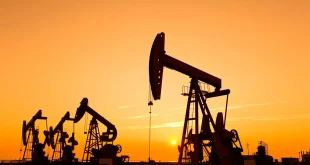– Saudi Arabia’s quicker than expected output restoration sparks oil price fall
Oil prices declined contrary to expectations due to the quicker than expected restoration of Saudi Arabia’s output, the contained global response to the drone attacks on Saudi Aramco’s facilities, and greater output from other supplier countries like Qatar, Australia and Russia, experts say.
International benchmark Brent crude traded at $60.58 per barrel at 0850 GMT on Monday, Sept. 30 for a 5.75% weekly loss, after ending the week at $64.28 a barrel on Sept. 27.
American benchmark West Texas Intermediate (WTI) is at $55.62 a barrel on Monday at the same time for a 4% weekly dip as it ended trading last Friday at $58.09 per barrel.
Saudi Arabia announced the restoration of much of its production much faster than anticipated, surpassing 8 million barrels per day (bpd), just two weeks after the drone attacks on two major Saudi Aramco-run facilities, which saw 60% of its output disrupted.
While capacity from the Abqaiq oil-processing facility was restored to 4.9 million barrels per day (mbpd), against the pre-attack capacity of 5.5 mbpd, production from the Khurais oil field is currently operating at 1.3 mbpd compared to the pre-attack level of 1.5 mbpd, according to the Riyadh administration.
On Sept. 17, Saudi Energy Minister Prince Abdulaziz bin Salman said his country aims to reach oil production of 11 mbpd by the end of September and up to 12 mbpd by the end of November.
– “The restoration in two weeks is impossible”
The Lebanese Parliament’s Former Energy Committee Adviser, Rabih Yaghi considers the restoration of oil production to pre-attack levels in just two weeks as a trigger for the oil price fall.
He said that prices are continuing to drop despite the military polarization in the Gulf region. On Sept. 18, Saudi Arabia joined the U.S.-led coalition for the safety and protection of maritime navigation to secure sea lanes in the Strait of Hormuz.
The price fall is also in contradiction to the Pentagon’s preparations to send weapons and hundreds of troops to Saudi Arabia to help the country boost its military defenses, which would normally spark concern over secure supply from the region.
“It was expected to see prices rise due to military activity in the region, but Riyadh’s statements eased prices,” Yaghi said.
He conceded that Saud Arabia is using strategic reserves to balance supply in the market because he said it would be impossible in just two weeks to restore major oil plants that have shaken up global markets overnight.
“The restoration process would take months,” he explained.
Yaghi said that the lackluster reaction from global players also repressed oil prices while stifling concerns in the markets.
“I think oil prices will not increase as long as the economic warfare in the Gulf does not turn into a military one,” he said.
– “Gas supplies help balance oil prices”
Omid Shokri, visiting scholar at George Mason University and adviser for Gulf State Analytics, said gas and LNG supplies are ensuring the energy market is diversified and reduce dependence on oil. These supplies are also ensuring that long-term contracts are being replaced with short-term, flexible contracts.
“As [gas and LNG] production and exports increase, traditional customers are taking advantage of surplus production in the world market and prices are gradually falling. In the LNG sector, Qatar and Australia, as the largest exporter of this product, should be ready to compete with the U.S. ” Shokri said.
He explained that increased competition from other supply chains is changing the supply-demand equilibrium in the energy sector and bringing down oil prices.
“Supply and demand is an important factor in the international oil market, which needs increased supply from major OPEC members and non-members such as Russia,” he said.
He added that oversupply in the oil market due slowing economic growth of major energy consumers also directly affects market demand.
“Saudi Arabia was a reliable oil supplier for not only its consumers but also for the world’s oil market. During the Iran sanctions era, Saudis tried to produce more oil to create a balance in the global oil market. After the Aramco attack, Saudis wanted to show that it will be reliable supplier in the future,” he said.
“Increasing tensions in the region is not in favor of region’s countries, at present, we have balance in oil markets and it is not expected to see any price increases in coming months. If oil markets will face attacks, like the drone attacks to Aramco oil facilities, we will see oil prices increase. But I think Saudis are interested in solving current problems with Iran via negotiations and diplomacy,” he explained.
He said that all major decision makers in the region are aware that tension will produce no winners and as the major oil exports in the region, Saudi Arabia and Iran need stability in the region in order to be able to export oil, which their economies depend for revenues.
By Busranur Begcecanli
Anadolu Agency
energy@aa.com.tr





